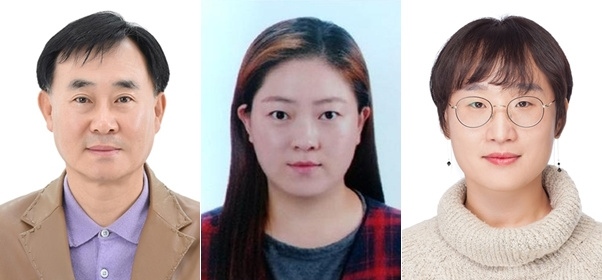JNU Stem Cell Research Center won the Excellent Poster Award at the International Symposium on Developmental Engineering
· Writer : Jeju National University ·Date : 2022-10-31 00:00:00 ·View : 140
-
noImage
줄기세포센터, 발생공학 국제심포지엄서 우수포스터상 수상
JNU Stem Cell Research Center won the Excellent Poster Award at the International Symposium on Developmental Engineering

Lee Seung-eun, Professor of academic research and Park Min-ji, a post-doctoral researcher at the JNU Center for Stem Cell Research (Head Park, Se-pill, Department of Bio Medical Informatics) won the excellent poster award at the “20th International Symposium on Developmental Biotechnology” organized by the Korea Animal Biotechnology Association.
The title of the presentation is ‘Production of Alzheimer’s Disease Pig Model Using Multi-Cistronic Vector System with Thy-1 Promotor’.
The number of dementia patients worldwide is estimated to increase even faster to 56.55 million by 2030 and to reach 106 million by 2050, which is three times the current number. In Korea, as of 2020, 838,000 (10.3%) out of 8.13 million people aged 65 or older are dementia patients. Particularly, Alzheimer's disease accounts for 70% of dementia cases, and most dementia patients suffer from this disease.
In order to produce human neuron gene therapy or animal models, it is essential to produce animal models similar to humans. However, the physiological and species-specificity differences between humans and mice were so large that the studies that were effective in mice showed different results in humans, resulting in low reliability.
In addition, when medium and large animals are used, the existing gene expression system does not work well, so it is very important to establish a vector system as an intrapuclear carrier of the target gene according to the use of a neural cell-specific promoter.
Therefore, this study developed a multi-vector system that simultaneously expresses three porcine neuron-specific Alzheimer's disease-inducing genes (APP, Tau, PS1) using the pig-derived Thy1 promoter. Moreover, as a transgenic dementia cloned pig, the production efficiency of the world's first production (Jeju National University Pig; JNUPIG, 2017) was improved. So far, 6 males and 2 females have been born, and a mass production system has been established in terms of technology.
Park Se-pill, head of the JNU stem cell research center, said, "This study can be used in the preclinical phase of transgenic cloned pigs, which can be useful for treating Alzheimer's disease and analyzing the pharmacological effects of candidates." and added, “As we have secured the optimal transgenic cloned fertilized egg production technology using Jeju native black pigs, it is evaluated that it will contribute to mass production of Alzheimer's disease model pigs through stable production construction as long as it is equipped with an all-one system from surrogate mother preparation to Jadon mammal in one region.”












 예비대학생
예비대학생 재학생
재학생 졸업생
졸업생 일반인
일반인 교직원
교직원